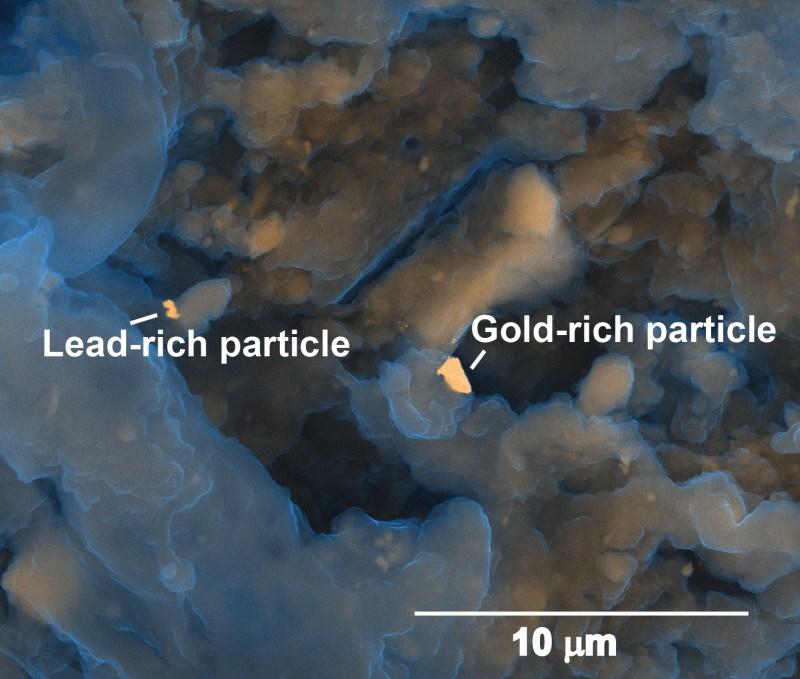
Your poop could actually turn into gold. And no, we are not talking about the Massachusetts fecal bank that pays $40 a scatological session and then turns the end result into pharmaceuticals. We are talking about a new twist on the Midas Touch. At an American Chemical Society press conference yesterday, scientists talked about a potential gold mine that is going from toilets to sewage pipes to wastewater treatment plants.
According to Kathleen Smith, a scientist at the U.S. Geological Survey, metals in trace amounts are everywhere, including in our sewage systems. Nanoparticles that manufacturers tuck into clothing to prevent bad odors, as well as add to hair and body care products and cleaning supplies, all contain some metals. And those metals include gold, silver and platinum. (The same goes for lead, arsenic and other toxins, but that does not mean you should feel guilty about not shopping exclusively at Whole Foods.) So, can they be recovered after being flushed down the toilet or sink drain?
Considering the fact that 7 million tons of biosolids come out of American wastewater treatment plants annually, you could find just about any element in all that sludge. According to the U.S. Environmental Protection Agency (EPA), about half of that solid waste is sent to landfill or is incinerated. The other half ends up treated and recycled, and much of it used as fertilizer on agricultural land. Yet despite all the nutrients in that muck, that massive amount is only used on 1 percent of the nation’s farmland. That statistic alone should be a hint that there is more potential to that solid waste than we can imagine.
To that end, Dr. Smith and her team of researchers are taking a two-pronged approach to gauge what exactly is in all that waste. First, the team is looking at how to remove some regulated metals from such waste that limit the biosolids’ use for purposes including fertilizing agricultural land. Next, the team will experiment with chemicals, including leachates, which mining companies use to extract metals out of solids such as rock. Smith noted that in a controlled laboratory setting, such chemicals could be used to extract precious metals safely with minimal environmental damage.
The result could be a figurative and literal gold mine. Another research group has estimated that the waste excreted from a community of 1 million people could hold as much as US$13 million worth of precious metals. So, could a potential US$4 billion precious-metals market negate the need to mine virgin land, an environmentally destructive process, for these increasingly difficult-to-find elements?
That amount is hardly going to bother the mining and extractive industries, but it could raise the eyebrows of municipal leaders who struggle with waste on a daily basis. The biggest hurdle, of course, is cost, and whether it would be cost effective to process all that sludge no matter how valuable those metals could be. Plus, as we have often seen with new technologies, what works in the lab may not pan out in the real world. But Smith’s team found one interesting trend: No matter where in the country they tested for samples, they found the concentrations of elements such as gold at similar levels. With extracting metals becoming more expensive and difficult, digging for gold could take on a new meaning in the near future.
Image credit: Heather Lowers, USGS Denver Microbeam Laboratory
Based in Fresno, California, Leon Kaye is a business writer and strategic communications specialist. He has also been featured in The Guardian, Clean Technica, Sustainable Brands, Earth911, Inhabitat, Architect Magazine and Wired.com. When he has time, he shares his thoughts on his own site, GreenGoPost.com. Follow him on Twitter and Instagram.

Leon Kaye has written for 3p since 2010 and become executive editor in 2018. His previous work includes writing for the Guardian as well as other online and print publications. In addition, he's worked in sales executive roles within technology and financial research companies, as well as for a public relations firm, for which he consulted with one of the globe’s leading sustainability initiatives. Currently living in Central California, he’s traveled to 70-plus countries and has lived and worked in South Korea, the United Arab Emirates and Uruguay.
Leon’s an alum of Fresno State, the University of Maryland, Baltimore County and the University of Southern California's Marshall Business School. He enjoys traveling abroad as well as exploring California’s Central Coast and the Sierra Nevadas.














